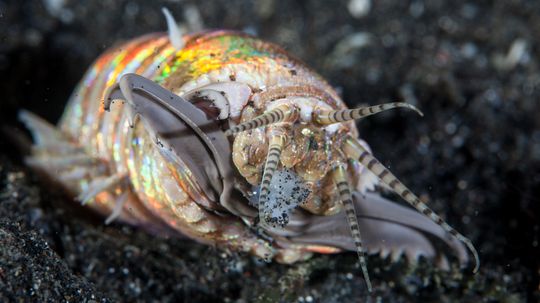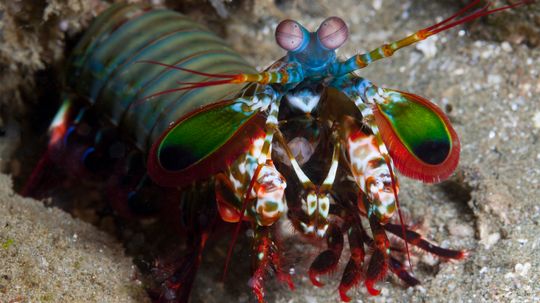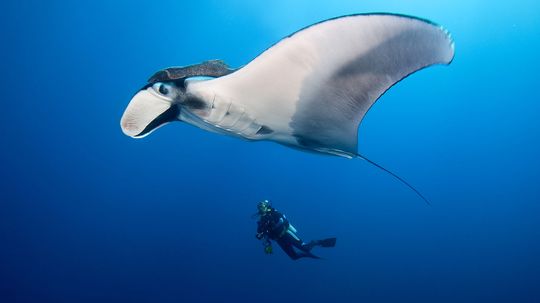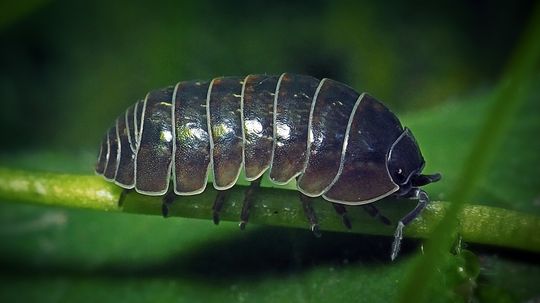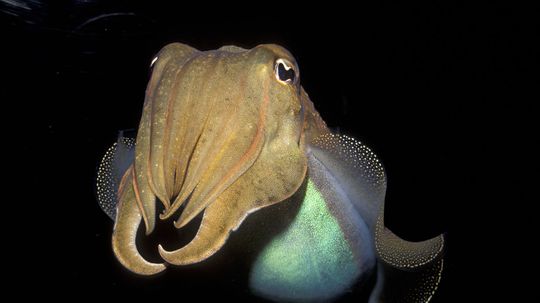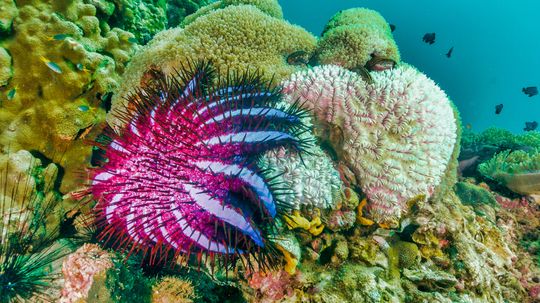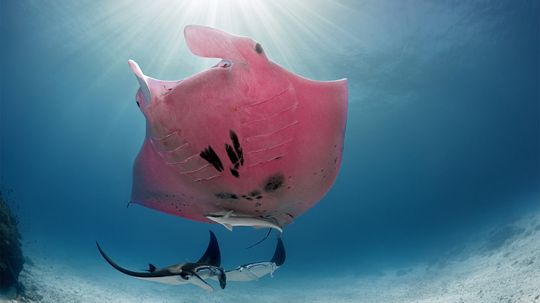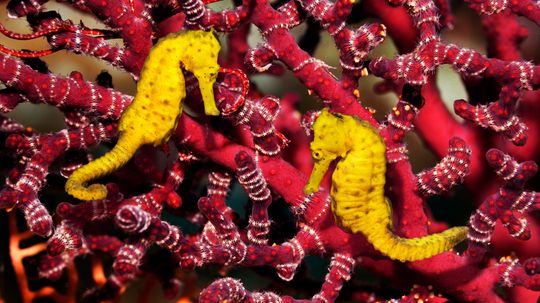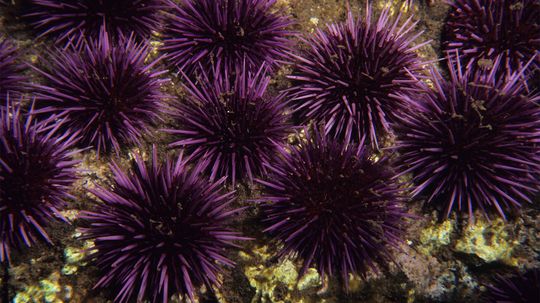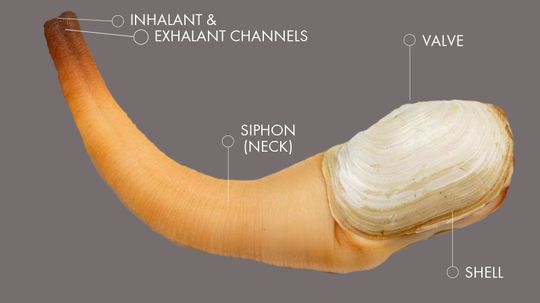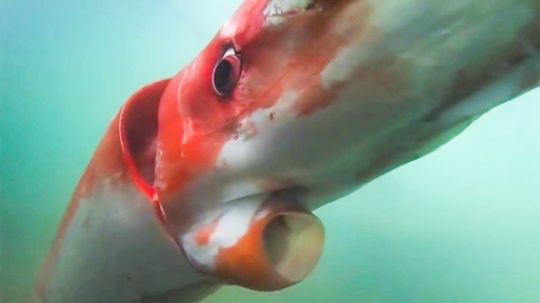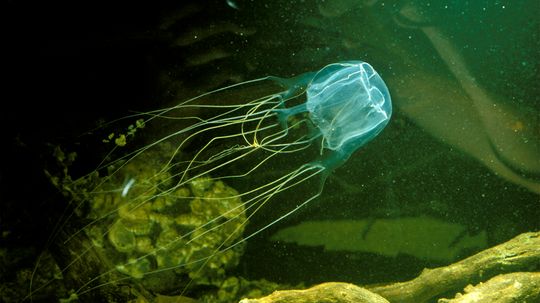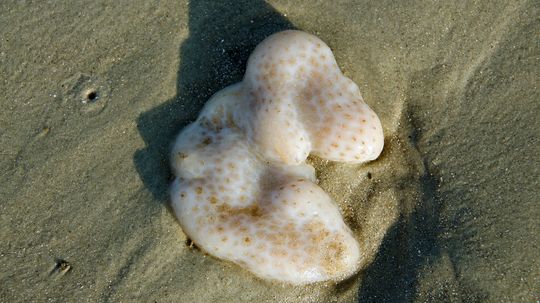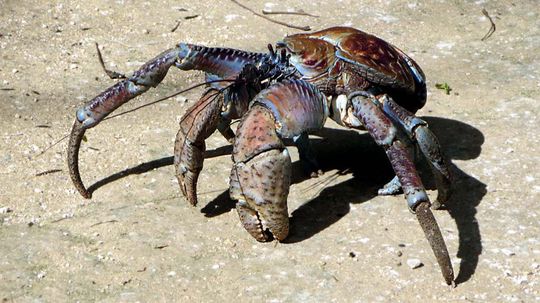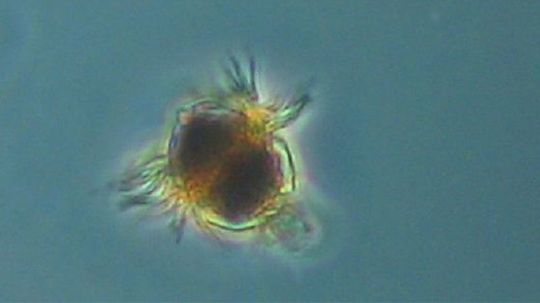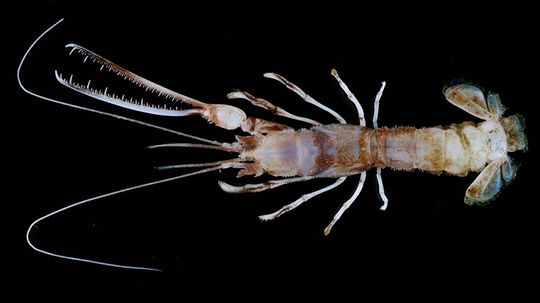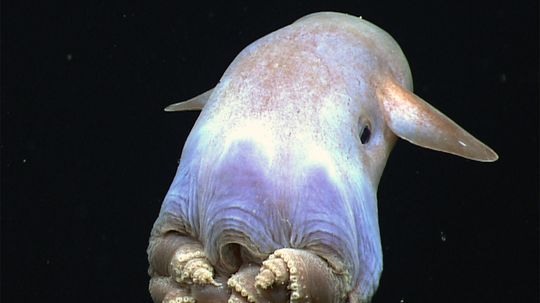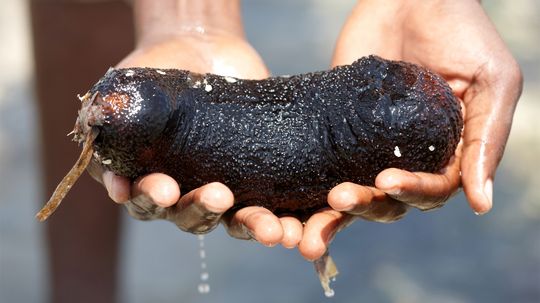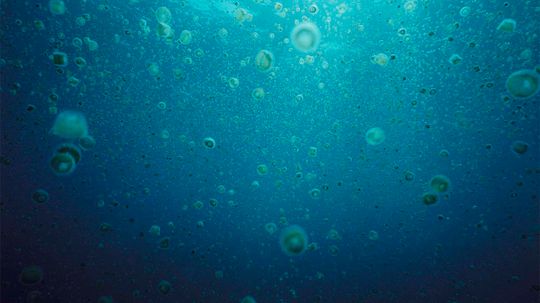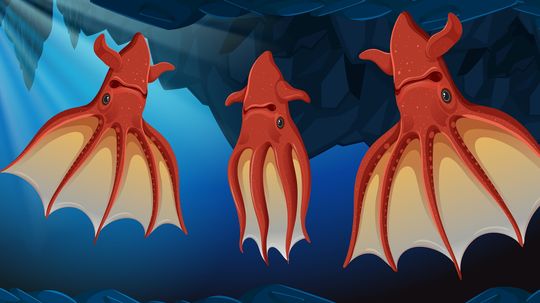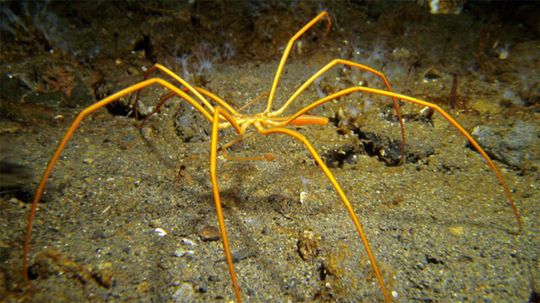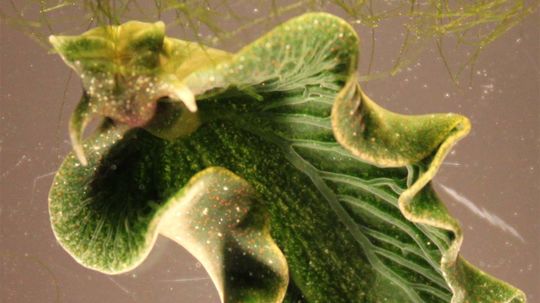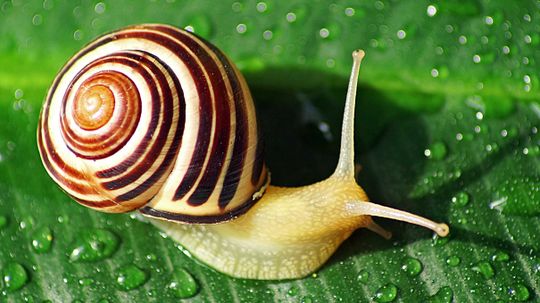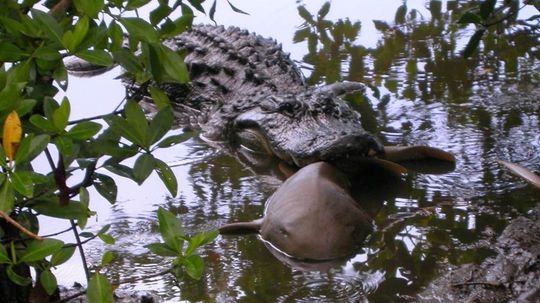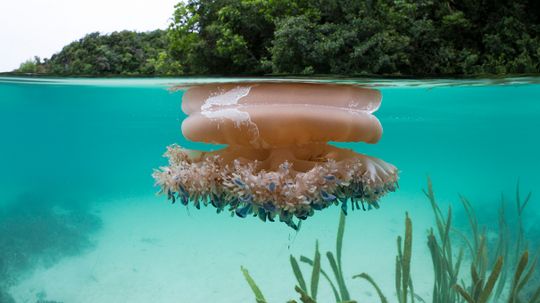Marine Life
Marine life includes an incredible and vibrant array of wild animals that live in the ocean. From tiny phytoplankton to massive blue whales, marine life is a vital source of food, energy and life for the entire planet.
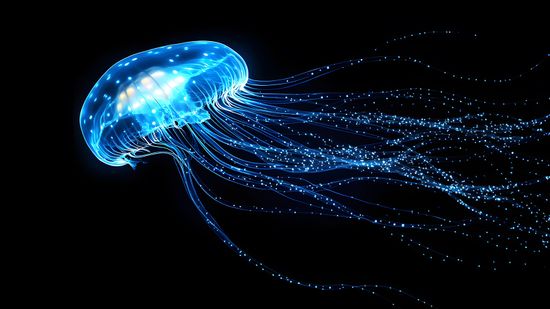
How Bioluminescent Jellyfish Get Their Signature Glow
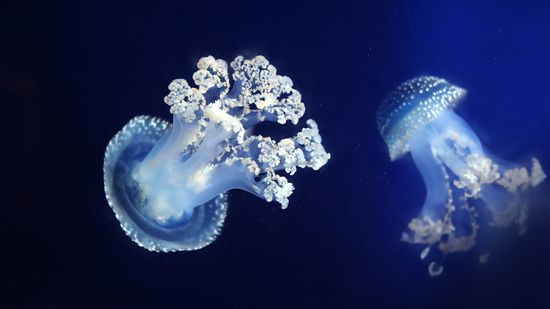
White Spotted Jellyfish: Cute Until They Become Invasive
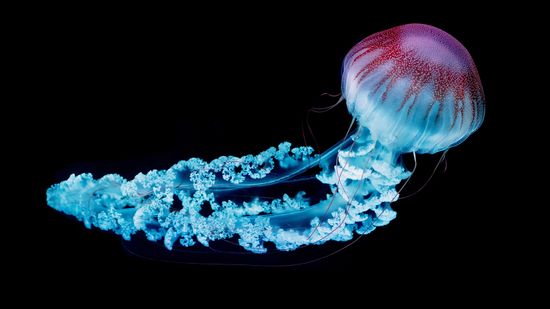
Deep Sea Jellyfish Have 30-foot-long Tentacles
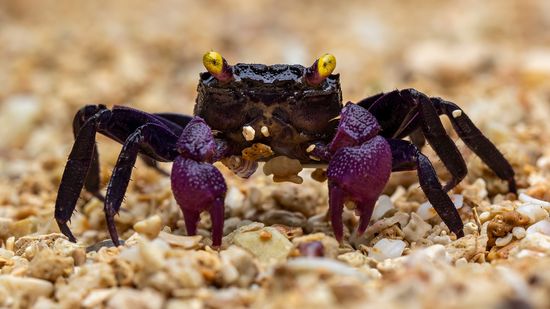
Vampire Crab: More Cartoonish Than Blood-sucking
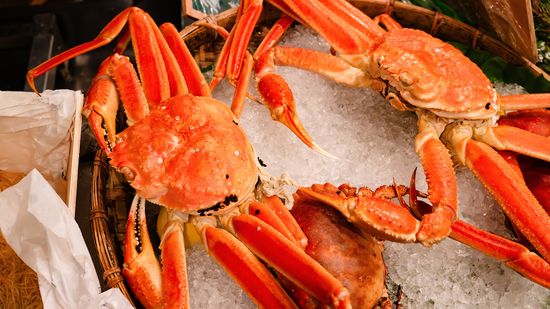
Snow Crab: A High-protein Delight Thriving in Cold Waters
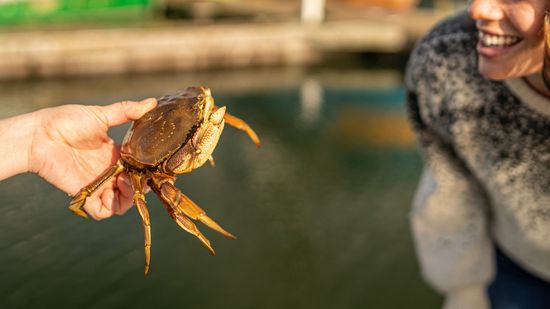
Dungeness Crab: A Deliciously Sustainable Crustacean
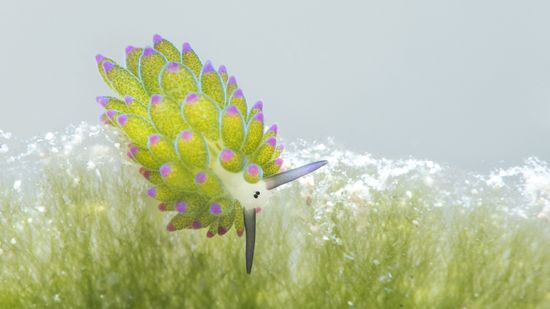
No, the Leaf Sheep Sea Slug Is Not an AI Hallucination
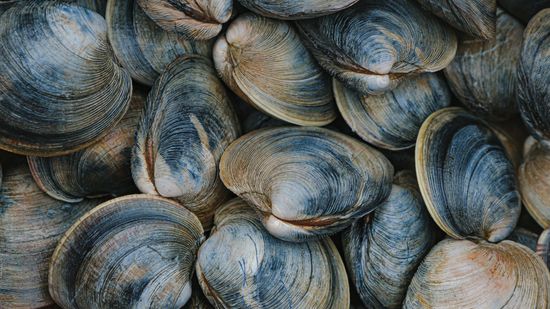
An Ocean Quahog Shows Its Age Like Rings on a Tree
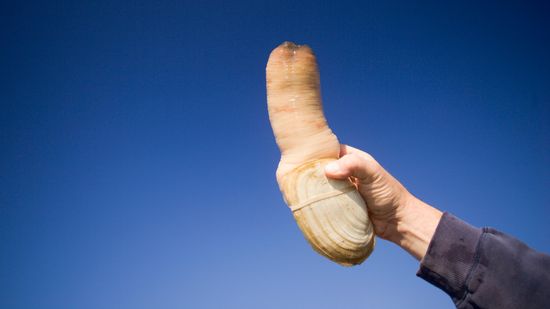
Geoduck Looks NSFW but Is Prized for Its Flavor

Colossal Squid vs. Giant Squid: There's a Massive Difference
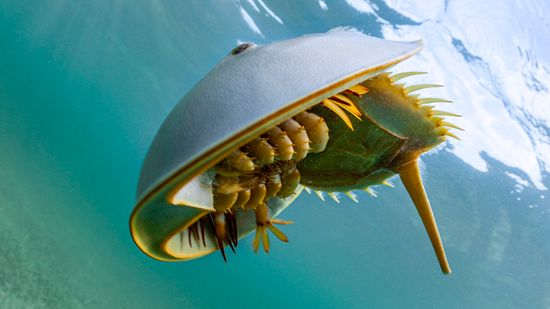
Horseshoe Crab Looks Like an Alien, If We're Being Honest
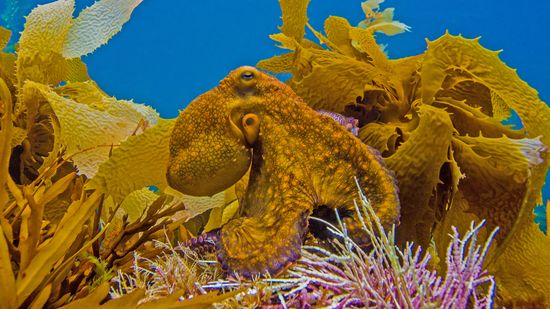
There Are 300 Types of Octopus Species, Some With Internal Shells
Learn More / Page 3
Yes, this terrifying worm was named after the infamous Bobbitt case. And with good reason.
By Mitch Ryan
These brightly colored crustaceans can smash aquarium glass or quickly cut through a human finger, so whatever you do, keep your distance.
These two sea creatures can be easy to confuse. But they're actually quite different. We talked to experts to find out how to tell them apart.
By Wendy Bowman
Advertisement
Roly-poly bugs are natural soil conditioners because they process decomposing matter, helping keep your garden soil clean and healthy. And - fun fact - they're crustaceans, not insects.
By Jeremy Glass
A master of camouflage, the cuttlefish can count, gender-bend and use a hidden weapon to outsmart its enemies.
By Alia Hoyt
What lives in water, has no gills, scales or fins and is not a fish? Yep, a starfish - which is why marine biologists have renamed these creatures sea stars.
By Mitch Ryan
A bright pink manta ray named Inspector Clouseau is causing a splash on the runway of the Great Barrier Reef.
Advertisement
Dwindling natural habitats are causing a significant decline in certain seahorse species. To bolster populations, researchers in Australia are building seahorse hotels and leaving the lights on.
By Wendy Bowman & Talon Homer
What sea creature looks like a spiny pincushion and is considered a delicacy to gastronomes around the world? Yep, the sea urchin.
By Jeremy Glass
These saltwater clams are the largest on the planet, and some can live as long as 100 years. And despite their, well, looks, they're pretty darn tasty.
Rumors of giant squid have terrified sailors for centuries, but new technology is now helping to bring these mysterious creatures up toward the light.
Advertisement
Most jellyfish are more bothersome than threatening, but the box jellyfish is so poisonous you might not make it out of the water alive.
Is that a dolphin pancreas? Some extremely firm manatee vomit? Nope, it's sea pork!
The biggest land-dwelling arthropod can crack into everything from coconuts to carcasses, but they're also really vulnerable.
The single-celled Mesodinium chamaeleon harnesses algae, which lives inside it, for energy.
By Loraine Fick
Advertisement
The first-ever deep-sea exploration of West Java seas netted more than 12,000 marine creatures, including some new species of crabs, prawns and lobsters.
By Oisin Curran
The Dumbo octopus is just one of the amazing creatures filmed by the most recent voyage of the E/V Nautilus.
The kindest thing you can say about a sea cucumber's physique is that it looks very much like a large hoagie bun dressed in a lumpy old sweater.
Sea lice aren't actually lice - they're jellyfish - but they're no fun when they get in your bathing suit.
Advertisement
You can't tell a book by its cover, and you can't tell a squid by its Nosferatu getup.
By Jesslyn Shields & Ada Tseng
Sea spiders don't do anything by the book, and researchers have just gotten to the bottom of how they breathe.
By Jesslyn Shields & Ada Tseng
By incorporating algae into their bodies, these beautiful sea slugs become one of the few animals with the photosynthetic ability of a plant.
By Amanda Onion
Snails can't pick and choose their shells like hermit crabs can. In fact, eviction means death. So how do those hard shells form over snails?
By Mark Mancini
Advertisement
Crocodiles are known to eat just about anything. But sharks? A scientific team found evidence that they've chowed down on those predators too.
By Mark Mancini
Don't think you have much in common with a jellyfish? What researchers just discovered may surprise you.
